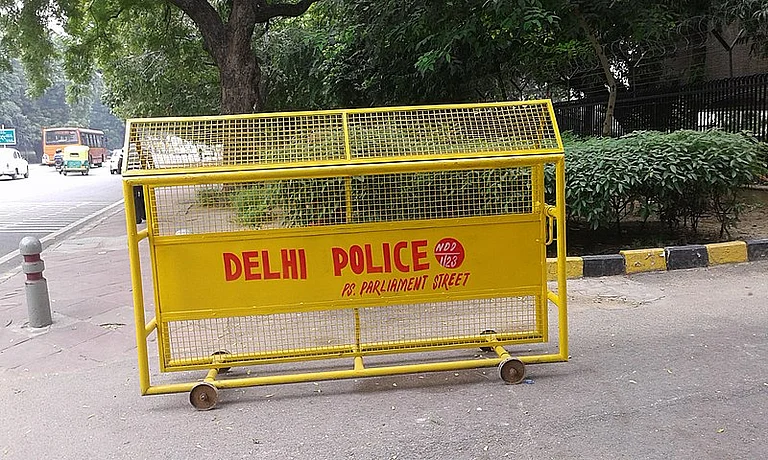When Lytton Strachey, the famous Bloomsbury Group man of letters and well-known pacifist, refused to enlist in the army during World War I because of his beliefs, the conscription board officer asked him: “So, you are a pacifist, Mr Strachey?” “Yes, sir,” he replied. “What would you do if a German tried to rape your mother?” “I’d try and get in between, sir,” he answered. The frivolity and facetiousness of that exchange could easily be a metaphor for the Maoists versus the State debates currently being enacted in the national media.
Ever since the killing of 24 policemen by Maoists in West Bengal last week, human rights activists and fellow travellers have been harangued, pounded, bullied, pilloried, vilified on our TV screens as hypocrites who shed copious tears when violence is inflicted on tribals in the Maoist belt but remain conspicuously dry-eyed when security forces are murdered in cold blood. They are asked to choose: Are you for us or against us? Straight answers, no prevarication, no fudging. Confess now: “Are there not double standards? Is there one law for the Maoists and one for the security forces?” And so it goes. The great debate, on what Prime Minister Manmohan Singh called “India’s biggest security threat”, is reduced to a farce as unrelenting efforts are made to extract a public confession from a defensive PUCL secretary or a mild Binayak Sen.
All the energy, focus and concentration zeroes in on a single-point agenda. To show up the ‘Maoist sympathisers’ as aiders and abettors of the assassins. Even if one concedes that some/most human rights activists are anti-national charlatans, how will exposing them solve the central problem—which surely is not the double-talk of the ‘Maoist sympathisers’ but the Maoist menace itself? If it is as grave a threat as the prime minister makes it out to be, would it not be more useful to look at the causes of tribal disaffection and why the Maoists are so successfully able to exploit it? I may have missed some debates, but in all the ones I watched, the 10-20-60 minutes of the programme were devoted entirely to the side-show (the silence of the ‘sympathisers’) rather than addressing the main issue.
If the consensus arrived at is that the Maoists should be exterminated, that helicopter machine guns should be used, that the full might of the state should be deployed, so be it. Then at least we would have a roadmap on how to proceed. Currently, we are enmeshed in an orgy of finger-pointing against a handful of people, who, however malign, are not part of the solution, nor are they part of the problem.
I hold no brief for intellectuals. There are, however, three reasons why they tend to oppose brutal state action in Naxal-hit areas. First. These are tribal areas which the state has neglected for decades. Even during British rule as also in post-Independence India, their lands were usurped for development, their access to forests denied, their communities shattered. The tribals are not beneficiaries but victims of modernity and development.
Second. Instead of alleviating the miseries of the tribals and taking development to their areas, the state is treating the Maoist problem as just a law-and-order issue. The sheer injustice of this approach produces widespread anger. The charge, incidentally, that Maoists prevent development is untrue. If anything, the presence of Maoists and local support for them has compelled the Indian state to resort to development rhetoric. After all, the Maoists were absent from Chhattisgarh-Jharkhand in the ’70s and ’80s. Had the Indian state developed these areas, you would not have armed rebellion there. This historical wrong weighs heavily on the ‘sympathisers’.
Third. The human rights issue must be seen in the proper context. We all know that the Constitution asks the state to protect human rights. It’s the state’s duty to do so. Therefore, the state’s violation of human rights is unacceptable to intellectuals. Indeed, the state is supposed to protect citizens from rights violations. But when the state itself becomes the violator....
Finally, the much-talked-about “condemnation” which supposedly is the key to the problem. Can condemnation by a small group make any difference to the ground situation? Considering the size of the Indian police force, the numbers and firepower at its disposal, how would condemnation help win the war against Naxals?
The person leading the campaign against the ‘sympathisers’ is Union home minister P. Chidambaram. I’m a great admirer of the HM, who is a man of formidable competence, vision and energy. Sadly, he thinks any attack on the way the state is handling the Maoist problem is a personal attack on him. Perhaps Mr Chidambaram’s insistence that intellectuals condemn Maoists has a psychological reason: he considers himself an intellectual and, consequently, craves for the support of his fraternity to justify his actions. But stories of state brutality—as spelt out in Outlook last week—pit the intellectuals against Chidambaram.
In an already confused and bloody dispute, the Chidambaram versus Intellectuals slanging match is an unhelpful complication.






















